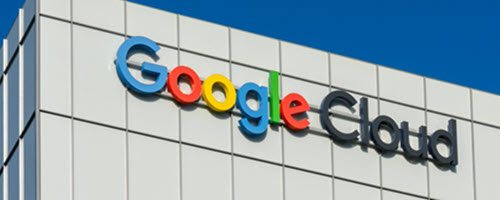|
|
|
|
|
|
|
|
|
|
The Morning Download: Intuit’s AI Bet Pays Off
|
|
By Steven Rosenbush | WSJ Leadership Institute
|
|
|
|
|
|
|
What's up: Chip stocks drop globally on renewed AI bubble fears; AMD’s Lisa Su has a new chip and a new goal; the era of AI layoffs has begun.
|
|
|
|

|
|
Intuit headquarters in Mountain View, Calif. Justin Sullivan/Getty Images
|
|
|
|
|
|
Good morning. Intuit laid its AI bet seven years ago, and now it’s paying off.
The WSJ Leadership Institute reported this week that the company was teaming up with OpenAI to deepen its use of the AI company’s models and make personal-finance-oriented applications available on ChatGPT. But the company’s latest financial results reflect years of earlier investments in data, AI and human intelligence.
The maker of TurboTax, QuickBooks, Credit Karma and Mailchimp said Thursday that sales climbed in its latest quarter as artificial-intelligence-driven offerings gained traction with midsize businesses.
More businesses are signing onto Intuit’s QuickBooks platform in an effort to cut down on hours of administrative work by automating accounting, invoicing and payroll processes, CFO Sandeep Aujla said. The platform is also expanding its business with existing customers as they look to use more of its AI tools.
QuickBooks customers tend to be smaller businesses, like bakers and caterers, who work during the day and manage their business in the evening, according to Aujla. The platform’s AI agents, which rolled out in July, are allowing such customers to save 12 hours of accounting work a month and get paid five days faster, he said.
The momentum with midmarket customers pushed QuickBooks revenue up 25% in the quarter, helping the company’s overall top line rise 18%.
“By thinking about AI, by thinking about how we unleash customer productivity and rolling out the tools that will do that, we’re seeing them pay out for our customers,” Aujla said. “And by paying out for our customers, they’re then paying out for us.”
A seven-year investment cycle. Intuit Chief Executive Sasan Goodarzi told me earlier this week that the company began laying the groundwork years ago for “done for you” customer experiences. That involved investments in data, AI and human intelligence.
“In order to get to ‘done for you’ experiences, we've invested billions around data, around AI and HI, human intelligence that all sits on the same platform. I think a lot of people have gotten caught up in the buzz of AI. We've bet the whole company on it more than seven years ago,” Goodarzi said. “We can deliver great experiences for customers, we can monetize it, and it accelerates growth.”
|
|
|
|
|
Content from our sponsor: Deloitte
|

|
|
Google Cloud Security: ‘Never Bet Against IT Inertia’
|
|
Rapid advances in AI are reshaping security operations, but automating routine tasks raises concerns about skill development for cyber defenders of the future, says Google Cloud’s Anton Chuvakin. Read More
|
|
|
|
|
|
|
|
|
|
|
|
|
|
Blockbuster results from Nvidia sparked a rally early Thursday before indexes reversed course and tumbled.
This morning found renewed AI bubble fears sending Asian semiconductor stocks tumbling.
-
Shares in Samsung Electronics and SK Hynix dropped more than 5%. The companies supply high-bandwidth memory products to Nvidia.
-
Taiwan's TSMC and contract electronics maker Foxconn Technology both fell more than 4%.
-
In Japan, technology investment conglomerate SoftBank plunged more than 10%.
-
Semiconductor Manufacturing International, China's biggest contract chip maker, lost more than 6% in Hong Kong.
|
|
|
|
|
|
|
|

|
|
Lisa Su in 2015, one year after taking the top job at AMD. Liz Hafalia/San Francisco Chronicle/Getty Images
|
|
|
|
|
|
AMD’s rapid rise over the past three years from $90 billion in market value to more than $335 billion reflects CEO Lisa Su’s strategy of placing the company at the center of the global AI boom. Su, an engineer known for toppling Intel in CPUs a decade ago, is now taking on Nvidia’s dominance in AI chips, the WSJ reports.
|
|
|
|
|
Su is showing that there may be a place for a strong No. 2 that can compete on price and keep AI developers from having to rely on a single chip company.
|
|
The WSJ's Robbie Whelan and Amrith Ramkumar
|
|
|
|
|
|
|
Investor confidence has surged after major deals with Oracle and OpenAI. AMD now forecasts 80% annual growth in its AI segment and double-digit market share within five years. Still, success hinges on executing the MI450 launch, delivering OpenAI’s massive 6-gigawatt data-center buildout and capitalizing on a coming shift toward inference computing.
|
|
|
|
|
|